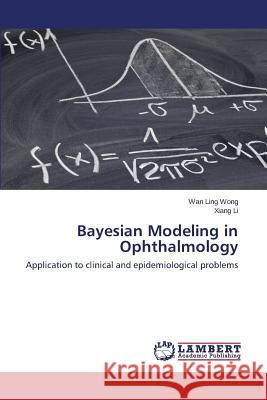Bayesian Modeling in Ophthalmology » książka
Bayesian Modeling in Ophthalmology
ISBN-13: 9783659626388 / Angielski / Miękka / 2014 / 204 str.
The use of advanced and newly developed biostatistical methods usually lag behind their initial discovery by a period ranging from a few years to decades. Most clinical research use well-established "classical" statistics to make statistical inference, for example, presence of association. However, when analyzing research data with complex study designs or data structure, simply relying on "classical" statistical methods such as t-tests or standard procedures from generalized linear model may be inappropriate as the data may not satisfy the underlying model's assumptions. This book will introduce the use of modern Bayesian methods to address research questions encountered in different areas of clinical and epidemiological research with a focus on eye diseases. The book will analyze data with questions that may be difficult to address using "classical" statistics. These chapters provide valuable information for epidemiologists, clinicians, health service planners and biostatisticians.
The use of advanced and newly developed biostatistical methods usually lag behind their initial discovery by a period ranging from a few years to decades. Most clinical research use well-established "classical" statistics to make statistical inference, for example, presence of association. However, when analyzing research data with complex study designs or data structure, simply relying on "classical" statistical methods such as t-tests or standard procedures from generalized linear model may be inappropriate as the data may not satisfy the underlying models assumptions. This book will introduce the use of modern Bayesian methods to address research questions encountered in different areas of clinical and epidemiological research with a focus on eye diseases. The book will analyze data with questions that may be difficult to address using "classical" statistics. These chapters provide valuable information for epidemiologists, clinicians, health service planners and biostatisticians.











